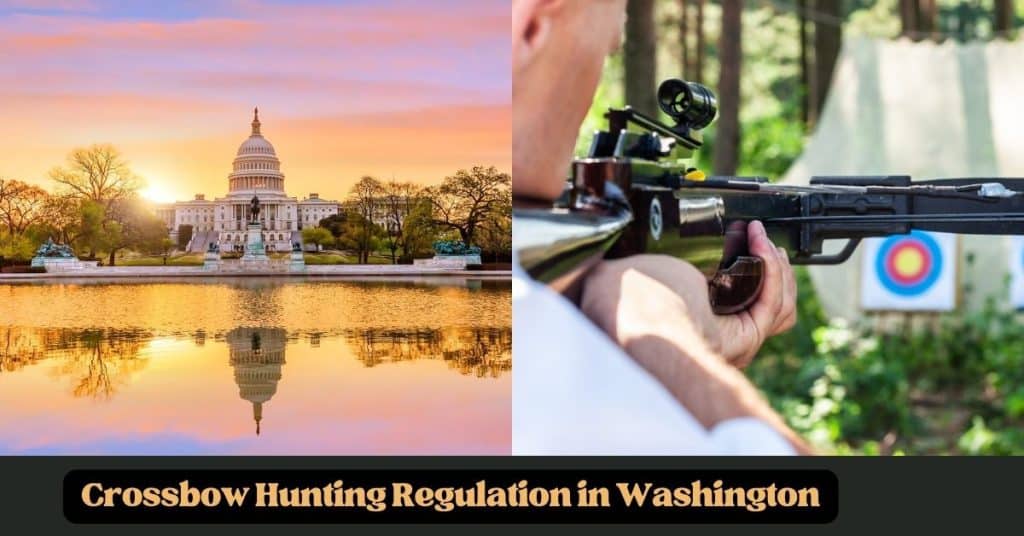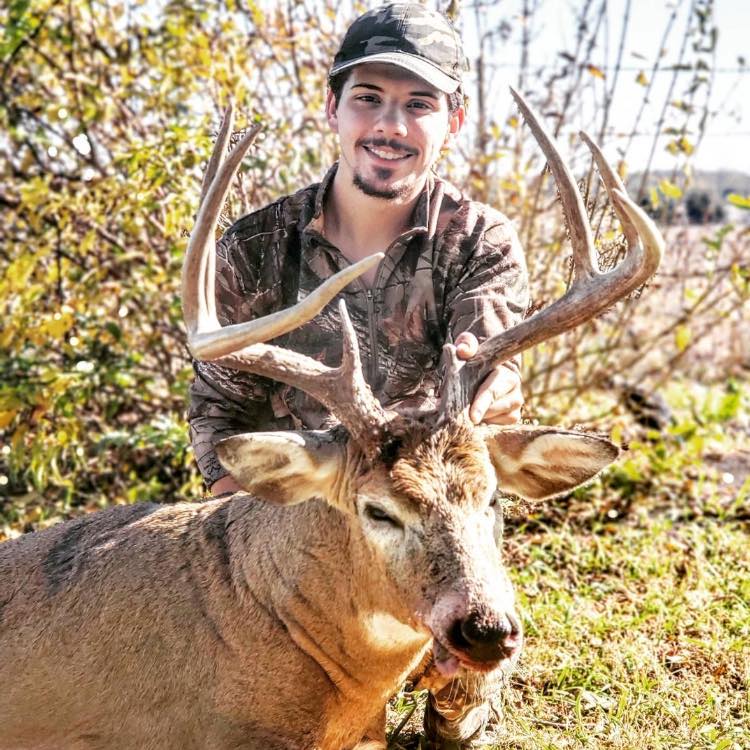If you’re as passionate about hunting as I am and you find yourself in the stunning state of Washington, you’re in for a treat. Washington offers a fantastic array of game and landscapes, making it a true haven for hunters. Whether you’re a seasoned pro or just starting out, it’s absolutely crucial to know about the hunting regulations, especially when it comes to crossbow hunting. So, let’s get into the nitty-gritty of crossbow hunting rules in Washington, ensuring you have a safe and successful adventure.
Crossbows: Your Trusty Companion in Washington’s Wilderness
Crossbows have become the weapon of choice for many hunters due to their accuracy and ease of use. But before you venture into Washington’s untamed wilderness with your trusty crossbow, let’s get acquainted with the state’s regulations concerning these formidable tools.

Crossbow Hunting Regulations in Washington
1. Modern Firearm Regulations
In the eyes of Washington, crossbows are considered modern firearms for hunting purposes. That means you can only use them during modern firearm seasons. Unlike archery seasons, where you might encounter restrictions on broadheads and gear, modern firearm seasons allow crossbows as long as they meet certain criteria.
2. Crossbow Specifications
To ensure that hunting is ethical and humane, Washington has laid down some regulations regarding crossbow specifications:
- Draw Weight: Your crossbow must have a minimum draw weight of 125 pounds, which you can easily purchase for less than $300. This ensures your crossbow packs enough punch for an effective and humane shot.
- Trigger Safety: Your crossbow’s trigger safety must be in perfect working condition. This is a non-negotiable safety measure to prevent any accidental discharges.
- Arrow or Bolt Weight: It’s a no-go to hunt big game with arrows or bolts weighing less than 350 grains. This rule ensures your projectile has enough weight to penetrate effectively.
- Broadhead Specifications: Your arrow or bolt must be fitted with a sharp broadhead, and the broadhead blade(s) should be at least seven-eighths of an inch wide. These requirements are in place to maximize the chances of a clean and humane kill.
3. Safety Regulations
Safety is paramount in Washington, and hunters are expected to follow strict safety guidelines:
- No Shooting from Vehicles: It’s an absolute no-no to discharge a crossbow from a vehicle or from, across, or along the maintained portion of a public highway. Safety should always be your top priority, and hunting should only happen on foot in designated areas.
- Special Use Permits: If you’re a hunter with a disability and want to use a crossbow during archery or muzzleloader season, you’ll need to get a special use permit from the department. It’s the law, and you can find more details in WAC 220-413-140 for complete ADA hunting information and definitions
4. Archery Regulations
While crossbows aren’t typically used during archery seasons in Washington, it’s still essential to be aware of the rules:
- Firearm Prohibition: During archery seasons, it’s a no-go to carry or possess any firearm, except for modern handguns carried for personal protection. However, modern handguns can’t be used for hunting big game during archery seasons.
- Broadhead Requirements: Regardless of your weapon, it’s against the law to hunt big game animals with arrows or bolts that lack a sharp broadhead or have blades less than seven-eighths of an inch wide.
- Using Lights: You’re not allowed to use infrared night vision binoculars or any other infrared night vision equipment or laser sights (except for range finders) while hunting big game and carrying a firearm, bow and arrow, or crossbow. It’s against the law.
5. Dispatching Wounded Game
If you find yourself in the challenging situation of needing to dispatch a wounded game, remember that you can only use a hunting method that meets the equipment requirements of your tag. This ensures humane and ethical hunting practices at all times.
Why is Washington a Great Place for Hunting?
Washington stands out as a premier destination for hunting enthusiasts, and its appeal is underpinned by a host of unique attributes. One of the most compelling reasons to choose Washington for your hunting expedition is the remarkable diversity of deer species found here. Hunters can pursue blacktails, mule deer, and whitetails, contributing to a diverse and exhilarating hunting experience. With an estimated deer population reaching around 360,000, Washington offers ample opportunities to engage with these magnificent animals.
For whitetail deer enthusiasts, the northeast region of the state is particularly enticing. This area, encompassing counties such as Ferry, Stevens, Pend Oreille, Spokane, and Lincoln, boasts the highest concentration of whitetails. These lush and varied landscapes provide an ideal backdrop for pursuing this sought-after species.
What sets Washington apart is its commitment to enhancing access for hunters. The Washington Department of Fish and Wildlife has established robust partnerships with private landowners, facilitating public access to otherwise private hunting grounds. This cooperative approach ensures that hunting opportunities are open to more than just public lands. Additionally, the state provides access to numerous designated wildlife areas, ensuring a plethora of options for hunters looking to explore different terrains.
A significant highlight in recent years has been the promise of outstanding public-land whitetail hunting. Preliminary reports from agency biologists have forecasted a stellar year for public-land whitetail hunting in 2022. This exciting prospect, however, should be considered alongside some of the complexities that come with hunting in Washington.
Navigating Washington’s hunting landscape can be challenging due to its intricate unit systems, deer hunting seasons, and regulations. Some criticisms have emerged, leading to a decline in Washington’s Antler Nation grade. Factors such as intricate policies, evolving rules, a reduction in harvests, steep nonresident license fees, and a confined whitetail range have all played a role.
Understanding the hunting seasons is essential for planning your adventure. Washington offers four distinct hunting seasons throughout the year, each dedicated to specific types of game. The collaborative efforts between the Washington Department of Fish and Wildlife and private landowners have opened up private lands to public access, creating exciting opportunities for Western-style whitetail hunts. Wildlife areas designated for hunting further enrich the possibilities.
To engage in hunting in Washington, hunters must obtain the requisite hunting license tailored to their chosen game and hunting style. For those born after January 1st, 1972, mandatory hunter education training is a prerequisite. Fortunately, the process of acquiring licenses and essential items has been streamlined with online purchasing options.
In summary, Washington’s appeal as a hunting destination is enriched by its diverse deer species, collaborative efforts to provide access to private lands, and the exciting potential for successful hunts. These unique attributes combine to make Washington a standout choice for hunters seeking unforgettable experiences in the great outdoors.
Conclusion: Hunt Responsibly, Preserve Nature
As responsible hunters, it’s our duty to be well-informed about the regulations that govern our hunting activities. Washington’s crossbow hunting regulations are designed to promote safety, ethical hunting, and the conservation of the state’s wildlife. By following these regulations, you can enjoy a truly rewarding and unforgettable hunting experience while contributing to the preservation of our natural resources. So, before you embark on your next hunting adventure in Washington, make sure you’re up to date with the rules and regulations that apply to you and your chosen hunting method.

About The Author:
Lake Streeter, A Gun enthusiast, and loves to hunt in the middle of the wood. Always check the latest hunting gears out in the market and try to share his honest opinion with the audience in Hunting Nook.
